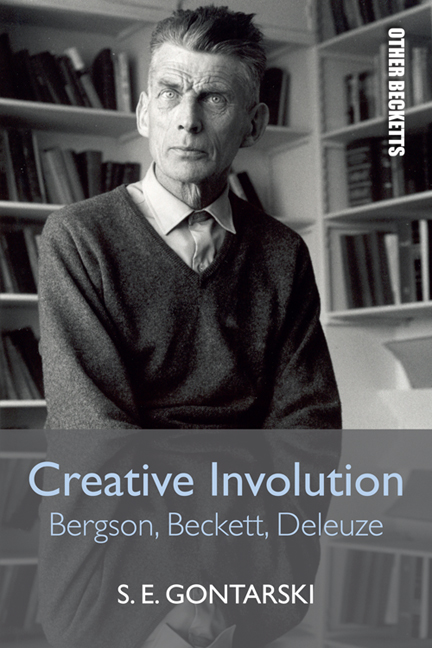Book contents
- Frontmatter
- Contents
- Dedication
- Other Becketts: Series Preface
- Abbreviations for Works
- Acknowledgements
- 1 ‘All the Dead Voices’: A Preface
- 2 ‘A Mixed Choir’ from The Ditch of Astonishment: An Introduction
- Anteriors
- 3 The Invention of the Modern: A Symbiotic Remapping
- 4 ‘Thought Thinks in its Own Right’: A. A. Luce, Samuel Beckett and Bergson's Doctrine of Failure
- Interiors
- Posteriors
- Index
4 - ‘Thought Thinks in its Own Right’: A. A. Luce, Samuel Beckett and Bergson's Doctrine of Failure
from Anteriors
Published online by Cambridge University Press: 05 August 2016
- Frontmatter
- Contents
- Dedication
- Other Becketts: Series Preface
- Abbreviations for Works
- Acknowledgements
- 1 ‘All the Dead Voices’: A Preface
- 2 ‘A Mixed Choir’ from The Ditch of Astonishment: An Introduction
- Anteriors
- 3 The Invention of the Modern: A Symbiotic Remapping
- 4 ‘Thought Thinks in its Own Right’: A. A. Luce, Samuel Beckett and Bergson's Doctrine of Failure
- Interiors
- Posteriors
- Index
Summary
Religion is to mysticism what popularization is to science. (Bergson, The Two Sources of Morality and Religion, Chapter III, 239)
Perhaps there is no whole, before you're dead. (Molloy, Three Novels 35)
In the autumn of 1923, a seventeen-year- old Samuel Beckett took up his third level education and enrolled as a Junior Freshman in Trinity College, Dublin. He would thus become part of the second full class at Trinity under the Saorstát Éireann, the Dáil Éireann having ratified the Anglo-Irish Treaty the previous January, 1922. The young Samuel was assigned Trinity Fellow Arthur Aston, that is, A. A. Luce (1882–1977) as his advisor and tutor. It would be a fortuitous conjunction, this middle class, athletic student from the south Dublin suburb of Foxrock and the Doctor of Divinity, former Captain of the Late 12th Royal Irish Rifles, recipient of the Military Cross in 1917, and adept fly-fisherman, a relationship, in some respects at least, as formative to the young Beckett's future as that of his acknowledged university mentor, Ruddy, Thomas Rudmose-Brown, whom Beckett would finally travesty as the Polar Bear in his first attempt at a novel, Dream of Fair to Middling Women. Luce would go on to become an international authority on the Idealist philosopher George Berkeley, Bishop of Cloyne, writing Berkeley's biography, several critical books on his work, including one called Berkeley's Immaterialism (1945), editing, with Thomas Edmund Jessop, the complete works in nine volumes (1948–57), and compiling, again with Jessop, a bibliography of Berkeley's work. Charles J. McCraken in ‘Berkeley's Realism’ called the pair ‘two of the twentieth Century's foremost Berkeley scholars’ (McCraken 2008: 25). Almost every time the connection between Luce and Beckett is cited in the critical discourse, the emphasis falls on Luce's introducing Beckett to the Idealist, immaterialist philosophy of George Berkeley. But in 1921, Luce was preoccupied with another metaphysician, the French philosopher Henri Bergson, Luce having delivered the prestigious Donnellan lectures that year, published, with the support of the Board of Trinity College, by the Society for Promoting Christian Knowledge in March of the following year as Bergson's Doctrine of Intuition.
- Type
- Chapter
- Information
- Creative InvolutionBergson, Beckett, Deleuze, pp. 77 - 90Publisher: Edinburgh University PressPrint publication year: 2015



